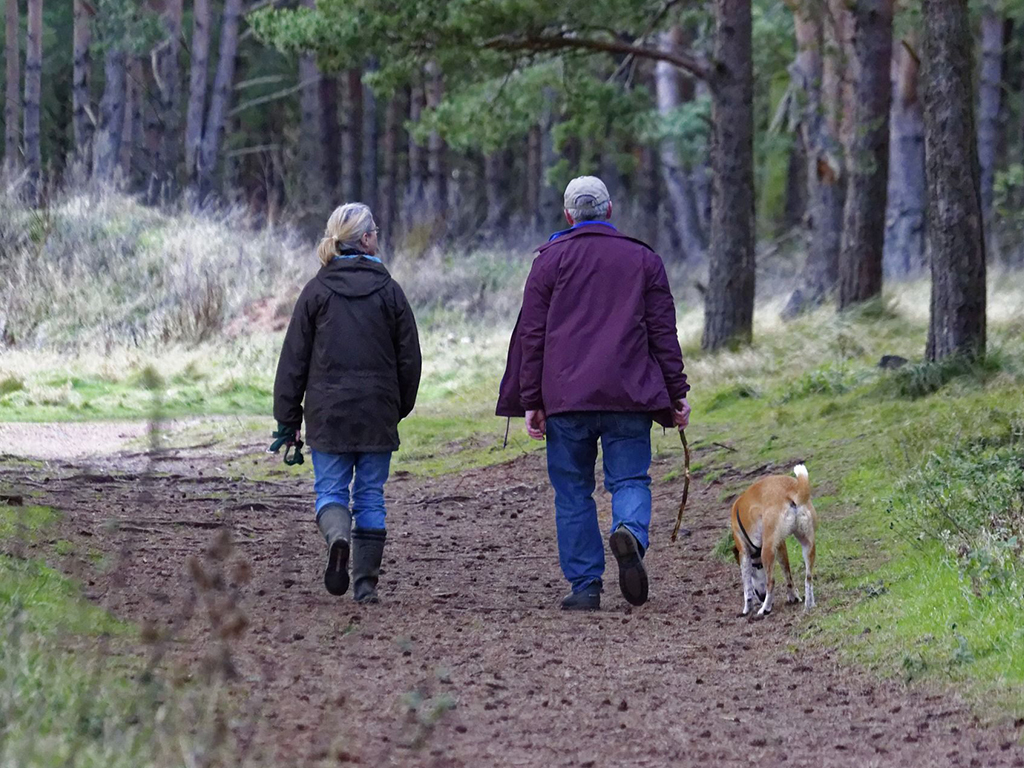
Walk Kansas starts March 18. The eight-week K-State Research and Extension program, available to all Kansans, supports healthy activity and nutrition. | Download this photo.
Taking steps to better health: Walk Kansas starts March 18
Learn about the 8 Wonders of Kansas
Feb. 19, 2018
MANHATTAN, Kan. — Wendy Burton of Winfield, Kansas is telling friends, family and colleagues to hit the road.
Burton, the wellness coordinator for USD 465 in Winfield, encourages employees in the school district and others to sign up for Walk Kansas every spring. Walk Kansas is an eight-week team-based program, sponsored by K-State Research and Extension, which this year runs March 18-May 12.
As soon as she hears registration opens, Burton said she urges people to sign up.
“Two to three times per week the Wellness Committee in USD 465 tries to help keep wellness front and center by picking topics such as walking to inspire people to move just a little bit more than they did the day before,” she said. “Joining forces with friends and forming a team is motivating to our staff. We have a ton of fun naming our teams and pushing each other to cover the distance.”
This year for the first time, participants will learn about the 8 Wonders of Kansas as they log the minutes they’ve walked each week.
The 8 Wonders include such places as the Kansas Cosmosphere, Monument Rock and Castle Rocks, and the Tallgrass Prairie National Preserve and the Flint Hills. These places were identified through a contest series organized by the Kansas Sampler Foundation to inspire awareness of the beauty and value in Kansas, and to encourage travel.
Walk Kansas participants don’t actually walk to those places, but as they log the minutes online that they’ve walked in their own neighborhoods, they learn about those iconic sites around Kansas.
“The program is for all fitness levels,” said Sharolyn Jackson, program coordinator. “Whether you never walk around the block or your idea of a great afternoon is a three-mile hike, this program helps you work toward or maintain a healthy lifestyle. Plus, it can connect you with friends, colleagues at work, or family members as you log miles as part of a six-person team.”
Walk Kansas is supported by many K-State Research and Extension offices around the state. The cost for most participants is $10 or less.
“Get a friend or two that will help you get out the door,” Burton said. “We all know the hardest part of any workout is getting your shoes on. Once you’ve done that, you are on your way.”
Since the launch of Walk Kansas in 2001, thousands of Kansans have walked millions of miles at almost no cost, but the benefits are huge, Jackson said, adding that study after study has shown that walking and other forms of moderate exercise can cut rates of heart disease, diabetes, colon cancer, and Alzheimer’s disease by at least 40 percent. After eight weeks, many participants say they sleep better and have more energy, endurance, muscle strength, and flexibility.
And it’s not just about walking. Through the eight weeks, participants receive a weekly e-newsletter with tips on healthy eating, strength training, mental and physical well-being and recipes. The Walk Kansas website has information about converting such activities as swimming, bicycling and dancing to miles, for those who prefer other activities to walking.
The idea is just to get moving and keep moving, Jackson said.
State of Kansas employees can earn four Health Quest credits for participating in the program.
More information is available at www.walkkansas.org or by contacting your county or district K-State Research and Extension office, www.ksre.k-state.edu/about/stateandareamaps.html.


